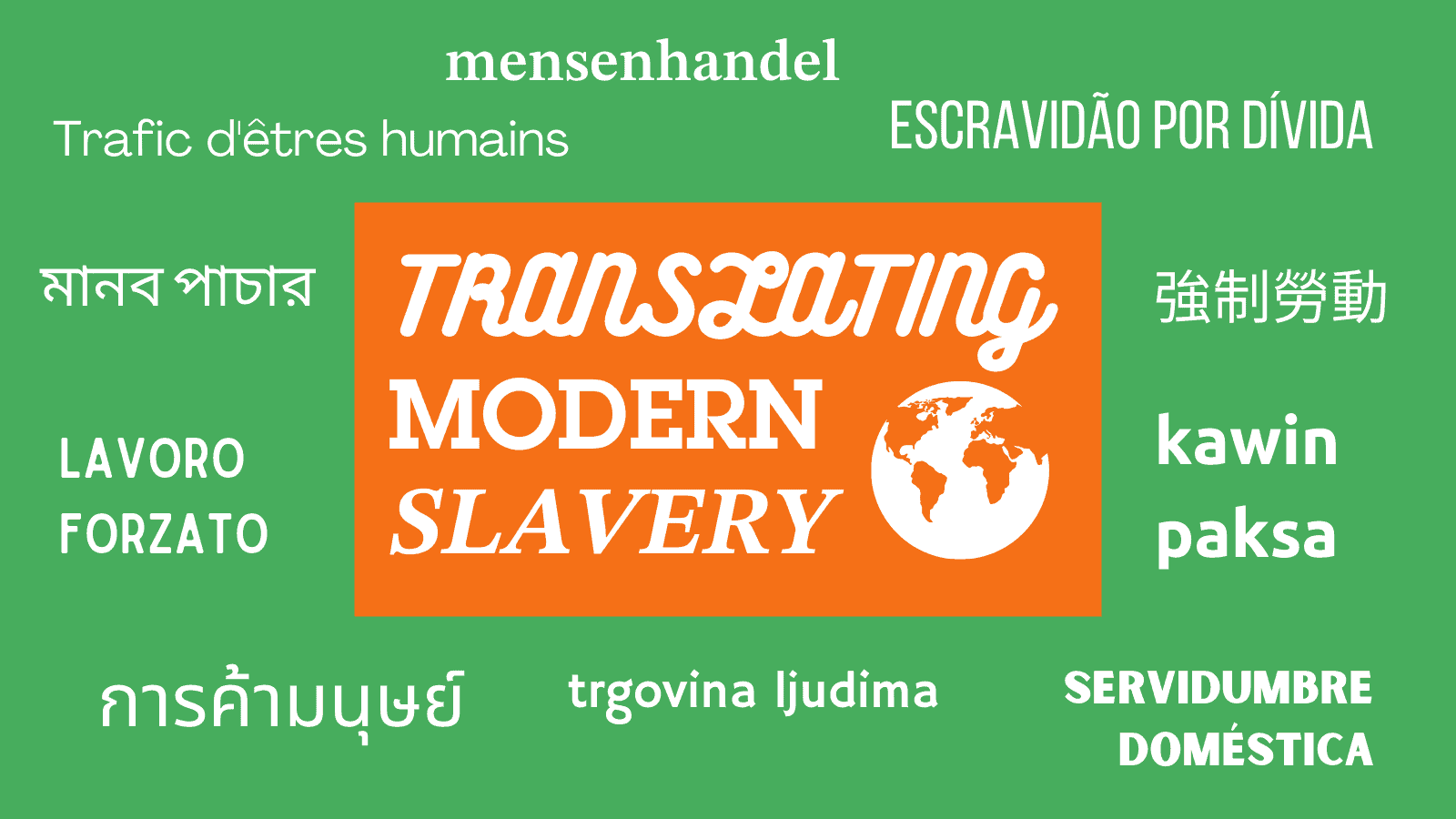We recently asked the Freedom United community around the world to take part in our survey Translating ‘Modern Slavery’ to better understand how terms such as “human trafficking,” “forced labor,” “modern slavery,” etc. are discussed, framed, or translated in languages besides English. Language is complex and we recognize how local cultural contexts and linguistic nuances shape local advocacy and public understanding.
Thank you to everyone who responded! Many of you speak the same languages, so for simplicity we present some of the most comprehensive and thoughtful input based on each language. Supporters are credited by name.
Have feedback, see an inaccuracy, or don’t see your language listed? Send us an email us at info[at]freedomunited.org
We asked: How are English-language terms such as human trafficking, forced labor, forced marriage, debt bondage, and modern slavery discussed in your language(s)? To help you think about this: when these issues are discussed what comes to mind? Do they have the same meanings and implications in English as they do in another language? How does local history, culture, or law shape these meanings?


-
Follow us on Facebook
5.6M
-
Follow us on Twitter
32K
-
Follow us on Instagram
8K
-
Subscribe to our Youtube
5.7K
Donate